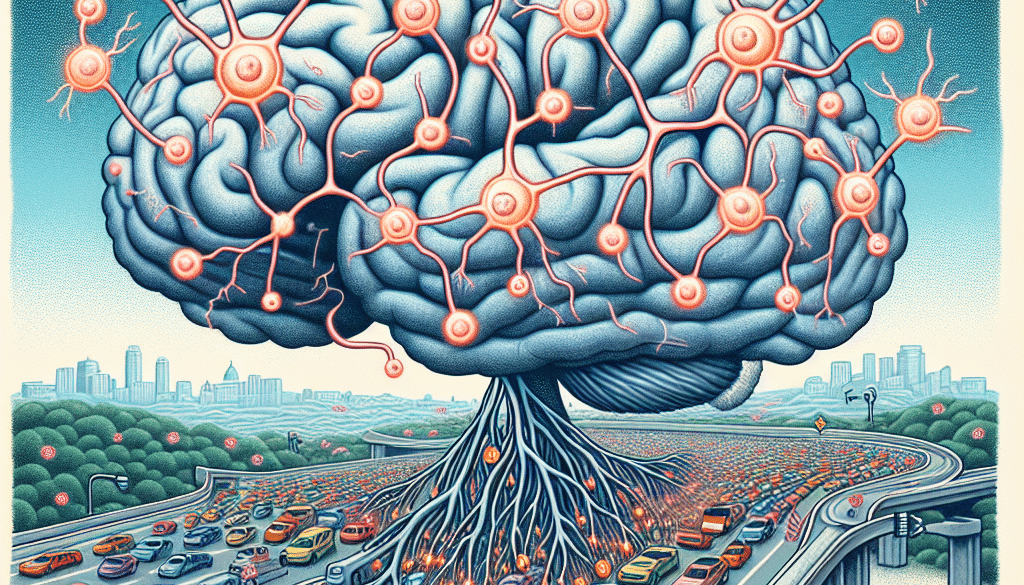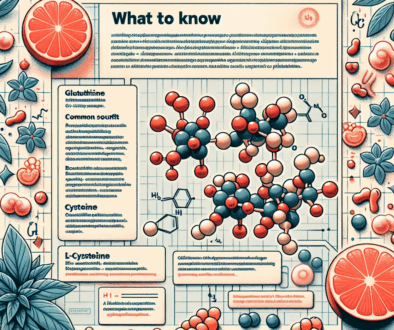Low Levels of Gamma-aminobutyric Acid Effects
-
Table of Contents
- Gamma-Aminobutyric Acid (GABA): Understanding the Impact of Low Levels
- The Role of GABA in the Human Body
- Consequences of Low GABA Levels
- Anxiety and Mood Disorders
- Insomnia and Sleep Disturbances
- Epilepsy and Seizures
- Chronic Pain Conditions
- Cognitive Impairments
- Factors Contributing to Low GABA Levels
- Strategies to Increase GABA Levels
- Case Studies and Research Findings
- Conclusion: Addressing Low GABA Levels for Better Health
- Enhance Your Health with ETprotein’s High-Quality Protein Products
Gamma-Aminobutyric Acid (GABA): Understanding the Impact of Low Levels
GABA, or gamma-aminobutyric acid, is a crucial neurotransmitter in the human brain, responsible for regulating neuronal excitability and playing a significant role in muscle tone regulation. It acts as the primary inhibitory neurotransmitter, which means it helps to calm the nervous system by preventing over-excitation. This article delves into the effects of low levels of GABA, exploring the potential consequences on mental and physical health, supported by relevant examples, case studies, and statistics.
The Role of GABA in the Human Body
GABA is synthesized in the brain from glutamate, an excitatory neurotransmitter, through the action of the enzyme glutamic acid decarboxylase (GAD). The balance between these two neurotransmitters is essential for the proper functioning of the nervous system. GABA’s role extends beyond the brain, influencing various bodily functions, including:
- Reducing neuronal excitability throughout the nervous system
- Contributing to motor control
- Regulating anxiety
- Enhancing sleep quality
- Modulating muscle tone
Consequences of Low GABA Levels
When GABA levels fall below optimal, it can lead to a range of disorders and symptoms due to the resulting imbalance in brain activity. Some of the most common effects include:
- Anxiety and mood disorders
- Insomnia and other sleep disturbances
- Epilepsy and seizures
- Chronic pain conditions
- Cognitive impairments
Anxiety and Mood Disorders
Low GABA levels have been linked to increased anxiety, panic attacks, and mood swings. GABA’s inhibitory function is crucial for maintaining a calm and balanced nervous system. Without sufficient GABA, individuals may experience heightened stress responses and difficulty managing emotional reactions.
Insomnia and Sleep Disturbances
GABA plays a key role in promoting sleep. Low levels can lead to insomnia, characterized by difficulty falling or staying asleep. This can have a ripple effect on overall health, as poor sleep is associated with a host of other health issues.
Epilepsy and Seizures
Epilepsy is a neurological disorder marked by recurrent, unprovoked seizures. GABA’s role in preventing over-excitation of neurons is critical in controlling seizure activity. Low GABA levels can disrupt this balance, increasing the likelihood of seizure occurrence.
Chronic Pain Conditions
Chronic pain conditions, such as fibromyalgia, have been associated with low GABA levels. GABA’s inhibitory effects can help modulate pain signals in the brain, and a deficiency may exacerbate the perception of pain.
Cognitive Impairments
Cognitive functions, including memory and attention, can be affected by GABA levels. Research suggests that a GABA deficiency may contribute to cognitive impairments and the development of neurodegenerative diseases like Alzheimer’s.
Factors Contributing to Low GABA Levels
Several factors can contribute to low GABA levels, including:
- Genetic predisposition
- Chronic stress
- Poor diet
- Environmental toxins
- Certain medications
Understanding these factors is crucial for addressing GABA deficiencies and mitigating their effects on health.
Strategies to Increase GABA Levels
There are various approaches to increasing GABA levels, ranging from lifestyle changes to supplementation:
- Practicing relaxation techniques such as yoga and meditation
- Engaging in regular physical exercise
- Consuming foods rich in GABA or its precursors, like whole grains, green tea, and fermented foods
- Considering GABA supplements under the guidance of a healthcare professional
It’s important to consult with a healthcare provider before starting any new treatment or supplementation regimen.
Case Studies and Research Findings
Several studies have highlighted the impact of low GABA levels on health. For instance, research has shown a correlation between low GABA concentrations and increased anxiety symptoms. Other studies have focused on the role of GABA in sleep disorders, demonstrating that GABAergic medications can improve sleep quality in patients with insomnia.
Conclusion: Addressing Low GABA Levels for Better Health
Low levels of GABA can have far-reaching effects on both mental and physical health. By understanding the role of GABA and the consequences of its deficiency, individuals and healthcare providers can work together to develop strategies to restore balance and improve overall well-being. Whether through lifestyle modifications, dietary changes, or appropriate supplementation, addressing low GABA levels is a critical step towards maintaining a healthy, functioning nervous system.
Enhance Your Health with ETprotein’s High-Quality Protein Products
If you’re looking to support your GABA levels through nutrition, ETprotein offers a range of high-quality protein products that can complement your diet. Their selection of organic, non-GMO, allergen-free proteins provides an excellent foundation for a healthy lifestyle. Incorporating these proteins into your diet can help ensure you’re getting the essential amino acids necessary for optimal neurotransmitter function, including the synthesis of GABA.
About ETprotein:
ETprotein, a reputable protein and L-(+)-Ergothioneine (EGT) Chinese factory manufacturer and supplier, is renowned for producing, stocking, exporting, and delivering the highest quality organic bulk vegan proteins and L-(+)-Ergothioneine. They include Organic rice protein, clear rice protein, pea protein, clear pea protein, watermelon seed protein, pumpkin seed protein, sunflower seed protein, mung bean protein, peanut protein, and L-(+)-Ergothioneine EGT Pharmaceutical grade, L-(+)-Ergothioneine EGT food grade, L-(+)-Ergothioneine EGT cosmetic grade, L-(+)-Ergothioneine EGT reference grade and L-(+)-Ergothioneine EGT standard. Their offerings, characterized by a neutral taste, non-GMO, allergen-free attributes, with L-(+)-Ergothioneine purity over 98%, 99%, cater to a diverse range of industries. They serve nutraceutical, pharmaceutical, cosmeceutical, veterinary, as well as food and beverage finished product distributors, traders, and manufacturers across Europe, USA, Canada, Australia, Thailand, Japan, Korea, Brazil, and Chile, among others.
ETprotein specialization includes exporting and delivering tailor-made protein powder and finished nutritional supplements. Their extensive product range covers sectors like Food and Beverage, Sports Nutrition, Weight Management, Dietary Supplements, Health and Wellness Products, and Infant Formula, ensuring comprehensive solutions to meet all your protein needs.
As a trusted company by leading global food and beverage brands and Fortune 500 companies, ETprotein reinforces China’s reputation in the global arena. For more information or to sample their products, please contact them and email sales(at)ETprotein.com today.












